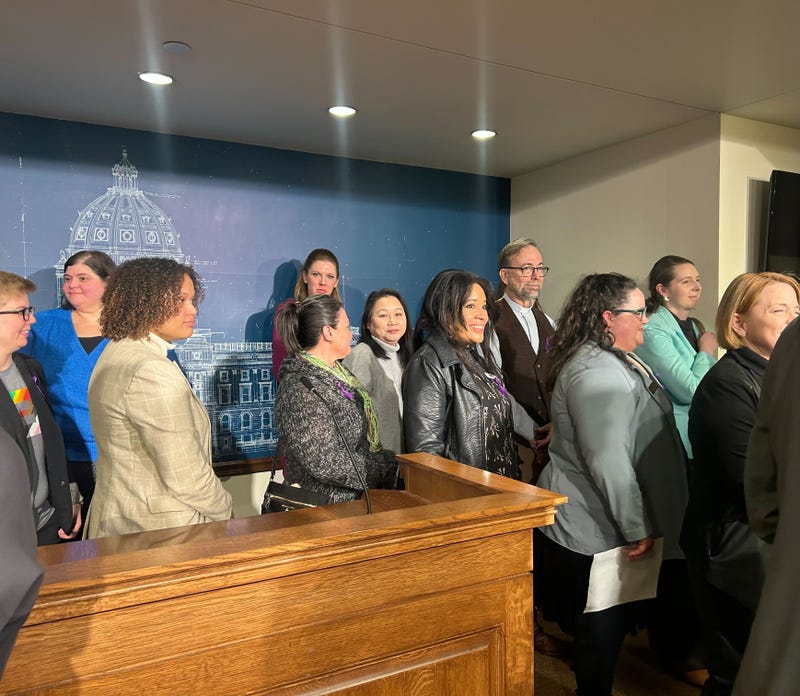
Minnesota Democratic lawmakers are sounding the alarm in response to President Donald Trump's freeze on federal loans and grants, which was temporarily blocked by a federal judge. Advocates say the loss of such funds would endanger victims of domestic violence.
"In recent years that federal funding has been decreasing, and now the Trump administration's attempt to freeze federal funds and the chaos and uncertainty surrounding the victim funding that he has created has made what was already a crisis in Minnesota a five-alarm fire," Representative Kelly Moller (DFL- Shoreview) says.
Moller adds the freeze in funding could include the ability to pay staff at domestic violence shelters, as well as the ability to provide housing vouchers, court advocates and other services to survivors.
"Federal funding that Minnesota receives for victims services is crucial to public safety," says Moller.
And while the freeze was temporarily blocked, many of the funds are still frozen, meaning advocacy groups may soon have to cut staff and services. Moller says in 2024, nearly 70,000 Minnesotans relied on victim services that may disappear entirely if funding isn't restored.
"While we're exploring options for boosting state funds to these programs, we'll have difficulty covering the full federal gap," she says. "And if these advocacy programs close, Minnesotans will be less safe."
In the meantime, it's unclear what the consequences will be for specialized groups like LGBTQ+ victims of domestic violence, and immigrants that may go without specific resources.
More on Trump Administration Freeze
A federal judge on Friday heard arguments on a request to further block President Donald Trump ’s administration from freezing trillions of dollars of grants and loans that fund everything from clean energy programs to bridge repairs to emergency shelters.
U.S. District Court Judge John McConnell in Rhode Island, who already approved a temporary restraining order on the funding freeze, is considering a request for a preliminary injunction from nearly two dozen Democrat states. If approved, it would be the first order since the Trump administration announced a sweeping pause on federal aid, stirring up a wave of confusion and anxiety across the United States.
McConnell said he would try to decide whether to grant the injunction within a week.
“Shortly after inauguration, the lights started to go out,” Rhode Island Attorney General’s deputy chief Sarah Rice told McConnell at the start of the hearing. She said the spending freeze was “categorical,” and in some cases violated the U.S. Constitution’s separation of powers by disrupting appropriations made by Congress.
The spending freeze upended a complex and delicate payment system and threatened a myriad of programs, Rice said, including some that help farmers and beekeepers, early childhood education programs, university research grants and water safety testing. Some entities have been left wondering if they will be able to make payroll, Rice said.
But Daniel Schwei, an attorney with the Department of Justice representing the Trump administration, said the freeze was well within the executive branch’s powers because the president was simply telling agencies that, “if you have discretion to pause, you should pause,” so they can consider how best to use federal funds.
“The President can implement his policy through subordinate agencies, as long as those agencies comply with the laws,” Schwei told the judge. He said the states’ claim was too “broad and amorphous.”
In the lawsuit, the states said the funding freeze generated confusion, causing immediate harm by impeding planning, wasting resources to mitigate potential impacts, and unnecessarily stopping work.
“Without the timely disbursement of this funding, the Plaintiff States will be unable to provide these essential services for residents, pay public employees, satisfy o
